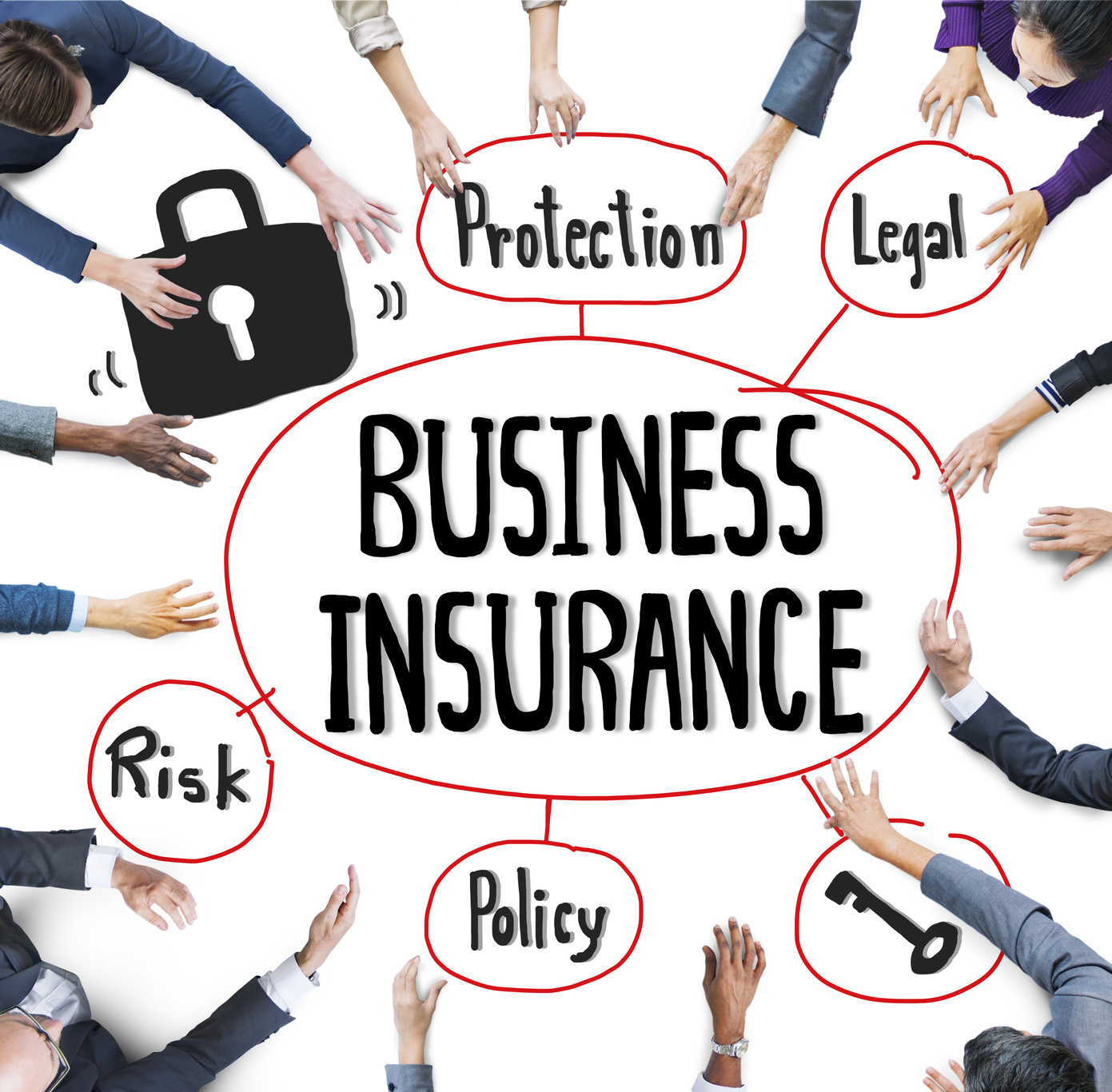In today’s dynamic economic landscape, self-employment offers individuals the freedom to pursue their passions and build their dreams. However, it also comes with inherent risks that can jeopardize the financial stability of your enterprise. This is where self-employed business insurance plays a crucial role in safeguarding your hard work and providing peace of mind.
Contents
Understanding Self-Employed Business Insurance
What is Self-Employed Business Insurance?
Self-employed business insurance is a collection of insurance policies designed to protect individuals who run their businesses. These policies cover various aspects of your business operations, including property damage, liability claims, and loss of income due to unforeseen circumstances.
Why is it Important?
For self-employed individuals, their business is their livelihood. Any disruption can have a devastating impact on their financial stability and future prospects. Self-employed business insurance acts as a safety net, ensuring that you are prepared for the unexpected and can continue operating even in the face of challenges.
Key Types of Self-Employed Business Insurance
1. Professional Indemnity Insurance
Professional Indemnity Insurance safeguards professionals against claims of negligence or errors in their work. It covers legal fees, compensation, and other expenses arising from such claims. This type of insurance is crucial for consultants, freelancers, and other professionals who provide services to clients.
2. Public Liability Insurance
Public Liability Insurance protects your business from claims of injury or property damage caused to third parties during your business operations. It covers legal costs, compensation, and other expenses related to such claims. This insurance is essential for businesses that interact with the public or operate in public spaces.
3. Employers’ Liability Insurance
If you employ staff, Employers’ Liability Insurance is a legal requirement in most countries. It covers your business against claims of injury or illness suffered by your employees during their work. This insurance helps you fulfill your legal obligations and protect your business from financial losses due to employee claims.
4. Business Contents Insurance
Business Contents Insurance covers the cost of replacing or repairing your business equipment, stock, and other contents in the event of theft, fire, or other damage. This insurance ensures that you can quickly recover from such incidents and continue your business operations.
5. Business Interruption Insurance
Business Interruption Insurance compensates you for lost income and ongoing expenses if your business is forced to close temporarily due to unforeseen events like fire, flood, or natural disasters. This insurance helps you maintain your financial stability during challenging times and ensures the survival of your business.
Choosing the Right Self-Employed Business Insurance
Selecting the right self-employed business insurance requires careful consideration of your specific business needs and risks. Here are some factors to consider:
1. Assess Your Risks
Identify the potential risks your business faces, such as property damage, liability claims, and loss of income. This will help you determine the types of insurance policies you need.
2. Compare Quotes
Obtain quotes from multiple insurance providers to compare coverage options and premiums. Ensure that the policies you choose offer adequate coverage for your business needs.
3. Read the Fine Print
Carefully review the terms and conditions of each policy to understand the coverage limits, exclusions, and claims process. Avoid policies with excessive exclusions or complicated claims procedures.
4. Seek Expert Advice
If you are unsure about your insurance needs, consult an insurance broker or financial advisor who can help you make informed decisions.
5. Review Your Insurance Regularly
As your business grows and evolves, your insurance needs may change. Regularly review your policies to ensure that they still provide adequate coverage for your current operations.
Conclusion
Self-employed business insurance is an essential investment for anyone running their own business. It provides financial protection against unforeseen events and allows you to focus on growing your enterprise with confidence. By carefully assessing your risks and choosing the right policies, you can safeguard your hard work and ensure the long-term success of your business.
Remember:
- Self-employed business insurance is not a one-size-fits-all solution.
- Tailor your insurance coverage to your specific business needs and risks.
- Regularly review your policies to ensure adequate protection.
- Seek expert advice if needed.
By prioritizing self-employed business insurance, you demonstrate a commitment to protecting your business and securing your financial future.
Additional Considerations for Self-Employed Business Insurance
1. Industry-Specific Risks
Certain industries have unique risks that require specialized insurance coverage. For example, construction businesses may need additional coverage for equipment and tools, while healthcare professionals may need malpractice insurance. Research the specific risks associated with your industry and ensure that your insurance policies address these risks.
2. Cyber Liability Insurance
In today’s digital age, cyberattacks are a growing threat to businesses of all sizes. Cyber Liability Insurance covers your business against financial losses due to data breaches, cyberattacks, and other cyber incidents. This insurance can help you recover from such incidents and protect your reputation.
3. Business Travel Insurance
If you or your employees travel frequently for business purposes, Business Travel Insurance can provide coverage for medical expenses, trip cancellations, lost luggage, and other travel-related risks. This insurance ensures that you are protected while traveling and can focus on your business objectives.
4. Product Liability Insurance
If your business manufactures or sells products, Product Liability Insurance protects you against claims of injury or property damage caused by your products. This insurance covers legal costs, compensation, and other expenses related to such claims.
5. Key Person Insurance
Key Person Insurance provides financial compensation to your business if a key employee, such as a founder or CEO, becomes critically ill, disabled, or dies. This insurance helps your business cover the costs of replacing the key person and ensures the continuity of your operations.
6. Income Protection Insurance
Income Protection Insurance replaces a portion of your income if you are unable to work due to illness or injury. This insurance provides financial support during your recovery and helps you maintain your standard of living.
7. Legal Expenses Insurance
Legal Expenses Insurance covers the cost of legal advice and representation for various business-related matters, such as contract disputes, employment issues, and tax investigations. This insurance helps you protect your business interests and avoid costly legal battles.
8. Business Vehicle Insurance
If you use vehicles for business purposes, Business Vehicle Insurance is essential for protecting your vehicles and covering any liability claims arising from accidents. This insurance ensures that you are financially protected in the event of an accident and can continue your business operations.
The Benefits of Self-Employed Business Insurance
1. Financial Protection
The primary benefit of self-employed business insurance is the financial protection it provides against unforeseen events. Insurance policies cover the cost of property damage, liability claims, and loss of income, ensuring that your business can weather any storm.
2. Peace of Mind
Knowing that your business is insured provides peace of mind and allows you to focus on growing your enterprise without worrying about potential risks.
3. Legal Compliance
Certain types of insurance, such as Employers’ Liability Insurance, are legal requirements in many countries. Having the necessary insurance policies ensures that you are compliant with the law and avoid penalties.
4. Enhanced Credibility
Having adequate insurance coverage demonstrates professionalism and enhances your credibility with clients, partners, and other stakeholders. It shows that you are serious about your business and committed to protecting your interests.
5. Business Continuity
In the event of a disruption, such as a fire or natural disaster, self-employed business insurance can help you recover quickly and continue your operations. This ensures the survival of your business and minimizes the impact on your customers and employees.
Conclusion
Self-employed business insurance is a critical component of any successful business strategy. It provides financial protection, peace of mind, and ensures the continuity of your operations in the face of challenges. By carefully selecting the right policies and regularly reviewing your coverage, you can safeguard your hard work and build a resilient enterprise that thrives in any economic climate.
Read More: Cheap Minnesota Insurance: A Comprehensive Guide






